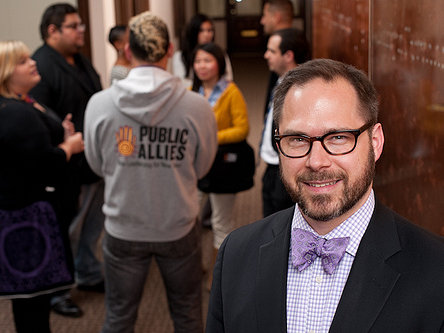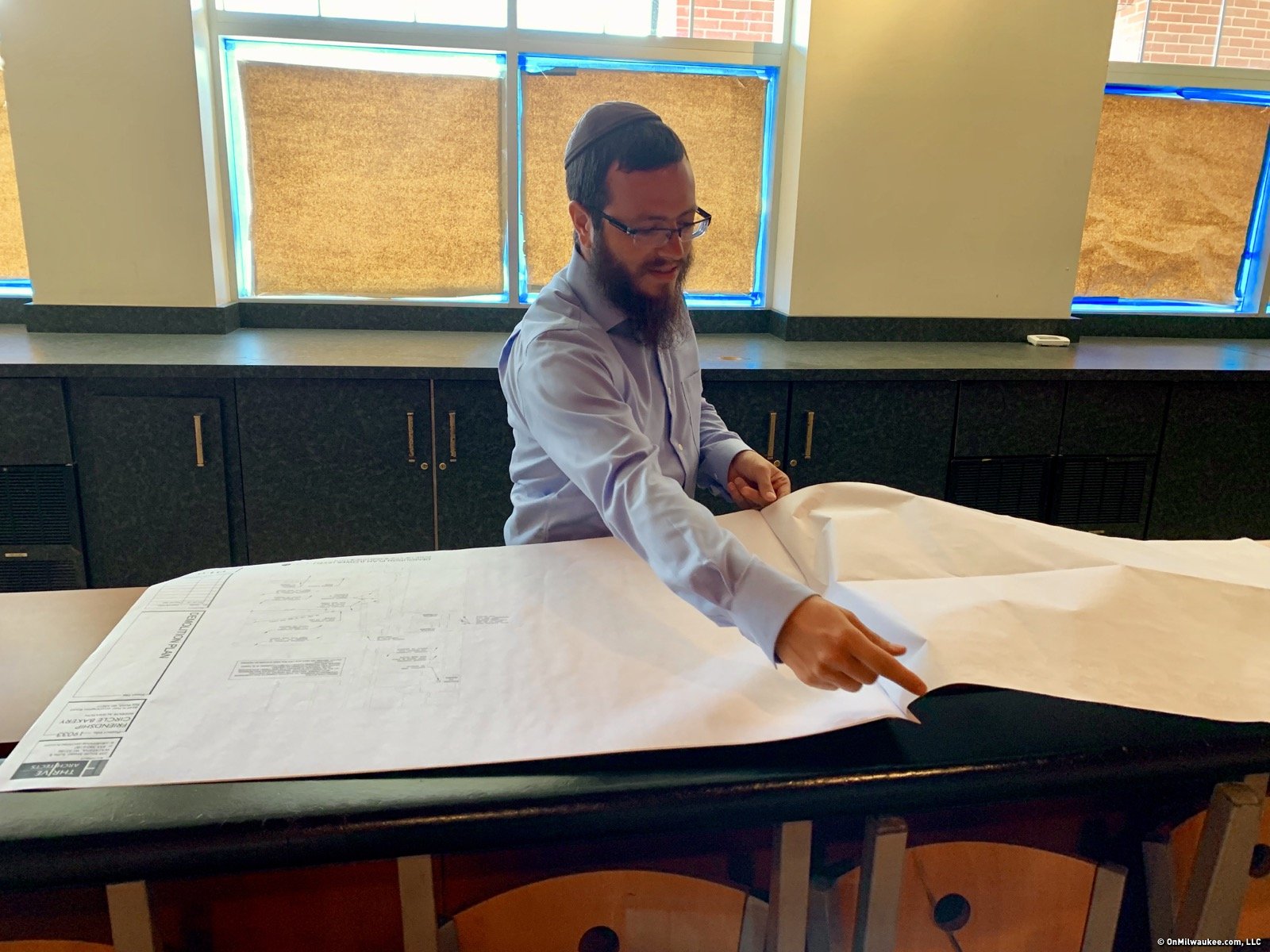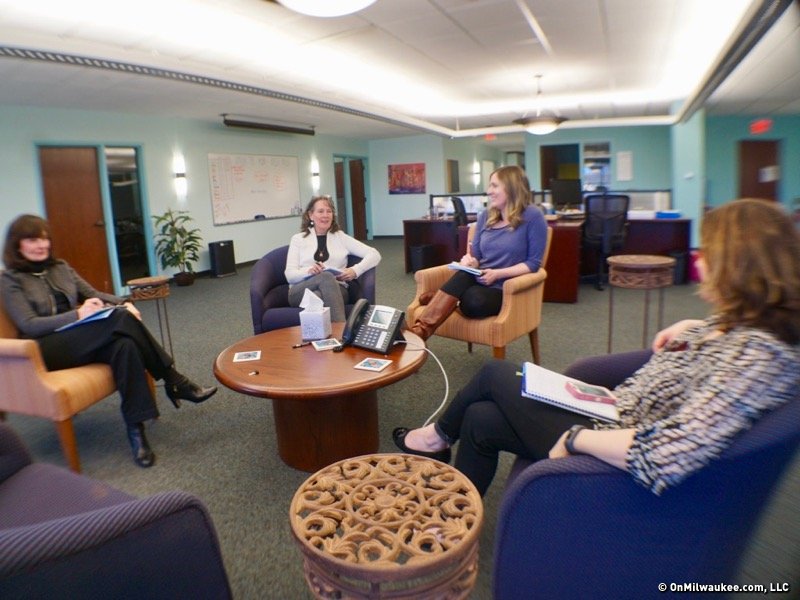After more than two decades as the national CEO of Public Allies, Paul Schmitz is moving on. But luckily for Milwaukee, he’s not moving out of the city.
Founded in 1992, Public Allies is an AmeriCorps program that’s dedicated to young-adult leadership development. Public Allies has graduated over 5,000 allies.
Schmitz will leave Public Allies in early 2014.
"I am proud of what I've accomplished with Public Allies, and believe it could benefit from some new energy and ideas at the top. My decision is to leave the job, not the work," says Schmitz. "I will continue my life's work which is about developing leaders and supporting inclusive collaboration to solve social problems and build stronger communities."
OnMilwaukee.com recently caught up with Schmitz and chatted about Public Allies, local unsung heroes, his wish list for Milwaukee and his ideal Saturday night in the city.
OnMilwaukee.com: How long did you work for Public Allies?
Paul Schmitz: I've been with Public Allies almost 21 years, 14 as national CEO. I started Public Allies Milwaukee while a late-bloomer student at UWM and a telemarketer for an insurance agency.
OMC: What is Public Allies’ mission?
PS: We work in 23 communities across the country to identify diverse young adults who have a passion to make a difference and then provide them with a full-time paid nonprofit apprenticeship and leadership training to turn that passion into a career working for community and social change.
OMC: What did you like most about the job?
PS: It’s an amazing job as I've been able to contribute to the development of over 5,000 diverse young leaders across the country committed to a lifetime of service and social change.
There's no greater reward than seeing people achieve things they could not have dreamed of – the teen mom in community college who became a White House lawyer, the young woman coming out of foster care who has a graduate degree and worked for a major foundation reforming foster care, the high school drop-out who has a master's degree and leads a large agency helping youth in his neighborhood stay in school.
It is this blend of personal and community transformation that makes Public Allies so inspiring and effective.
The other amazing part of the journey is that Michelle Obama was an employee of Public Allies and the President was one of our founding board members, and it is weird to know a couple who became President and First Lady.
One of the most fun things I ever did was work on the Presidential Transition Team and I was honored to serve on the White House Council for Community Solutions and be an advisor to the White House's social innovation efforts. Like many of our Allies, I've achieved things I could not have dreamed of when I started.
OMC: Why are you leaving and where are you going? Was this a tough decision?
PS: As I passed 20 years with the organization, I did a lot of deep reflection and decided that it would be a good time for me and the organization to have a transition. We have our largest class of Allies ever and opened new offices this fall in Iowa and Detroit.
I am proud of what I've accomplished with Public Allies, and believe it could benefit from some new energy and ideas at the top. My decision is to leave the job, not the work. I will continue my life's work which is about developing leaders and supporting inclusive collaboration to solve social problems and build stronger communities.
I will continue to do a lot of speaking, write a second book (his first is "Everyone Leads: Building Leadership from the Community Up"), and most likely consult with groups rather than work for any one organization.
OMC: What is your "wish list" for Milwaukee in 2014?
PS: I've been very impressed by the work of the United Way, the City Health Department and many nonprofits to reduce teen pregnancies by more than half of what they used to be in Milwaukee. My wish list is to see other city-wide metrics also change for the better – high school graduation rates, reading scores, infant mortality, unemployment.
The racial and economic disparities in our community are tragic, and my number one wish is always to see us less segregated in where we live, how we live and the opportunities we have.
Diversity is not something you believe in, it is something you do and too many leaders in Milwaukee fail to demand and hold themselves accountable for diversity in their workforces and at the tables where decisions are made.
Oh, and I'd love Midwest Express back, thank you very much. We used to fly direct everywhere and I now spend much of my time running for connections in other airports. I don't miss the food or cookies, just the seats and the direct flights.
OMC: What are Milwaukee's greatest strengths and who are some of the unsung heroes or organizations that are contributing to its greatness?
PS: I love living in Milwaukee. I travel constantly and I am continually proud of the positive developments in Milwaukee over the years. I remember then City Development Commissioner Michael Morgan presented this plan for Milwaukee to be a 24-hour Downtown in 1993 to my Future Milwaukee class. Most of us laughed as he spoke about tearing down the freeway just north of Downtown, making one-way streets two-way and slowing down traffic with angle parking, expanding the Riverwalk and how there'd be dozens of new restaurants and thousands of new condos. It worked.
In many mid-sized cities, you see the same things but not here. We have so many great local restaurants, pubs, stores and cafes – how many cities have several competing coffee roasters? I love coffee and a great morning for me is sitting with a book at Colectivo. The Art Museum really shines. And the Pabst / Riverside / Turner folks have upped our music game substantially.
I've been disappointed in many ways by our local nonprofit sector, and especially the lack of support to some of the most dynamic young leaders of color who've emerged. I've seen a lot of great talent leave this city and thrive elsewhere because they weren't recognized or supported here.
Two of the most dedicated young leaders I've worked with and greatly
admired are Reggie and Sharlen Moore. There are too many alumni working to make Milwaukee better to mention, but I'll throw out two who inspire me: Peter Hoeffel is a great advocate for people with disabilities as Executive Director of the National Alliance on Mental Illness in Milwaukee, and Jennifer Beamon is a recent graduate who has overcome many life barriers and now is a college student and working at the I Have a Dream Foundation to help kids graduate from school and aspire. I'm lucky because I know so many inspiring people doing great work.
OMC: If you have an unlimited budget to spend on a Saturday evening in Milwaukee, what would you do / where would you go?
PS: I'm not really a nightlife guy. Many Saturday nights, I cook and invite other families over with our five kids to eat and watch a movie together. I love cooking and hosting.
Otherwise, we often read or go to movies. An ideal night out would probably be for my partner Jennifer and I to go out to one of our favorite restaurants like Sanford, Crazy Water, Pastiche, Coquette or La Merenda with friends, and then see a favorite band like Wilco at the Pabst or local greats like Paul Cebar or Semi-Twang at Shank Hall.
And if Colectivo was open that late, I'd stop for a decaf latte on the way home to talk about the show.
Molly Snyder started writing and publishing her work at the age 10, when her community newspaper printed her poem, "The Unicorn.” Since then, she's expanded beyond the subject of mythical creatures and written in many different mediums but, nearest and dearest to her heart, thousands of articles for OnMilwaukee.
Molly is a regular contributor to FOX6 News and numerous radio stations as well as the co-host of "Dandelions: A Podcast For Women.” She's received five Milwaukee Press Club Awards, served as the Pfister Narrator and is the Wisconsin State Fair’s Celebrity Cream Puff Eating Champion of 2019.







